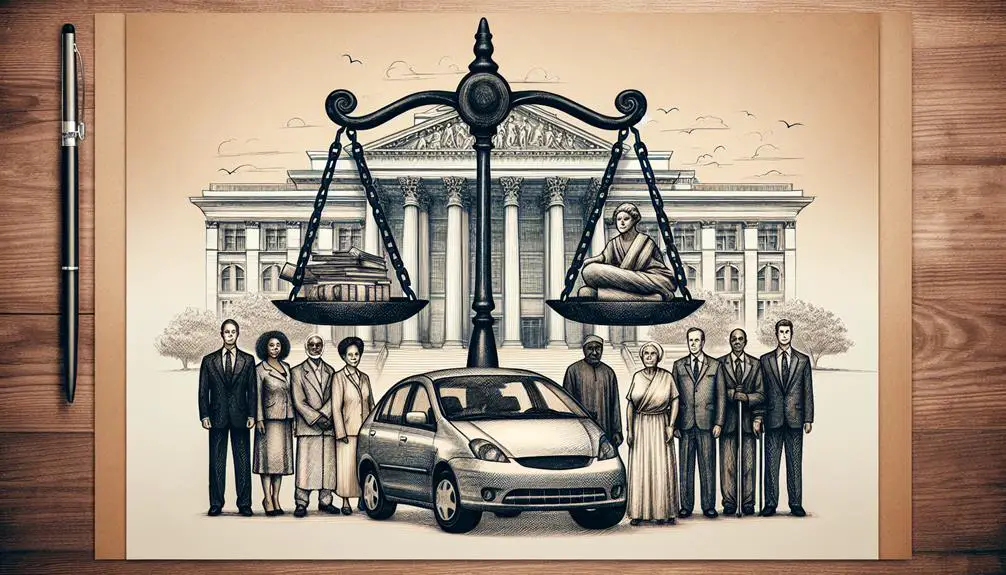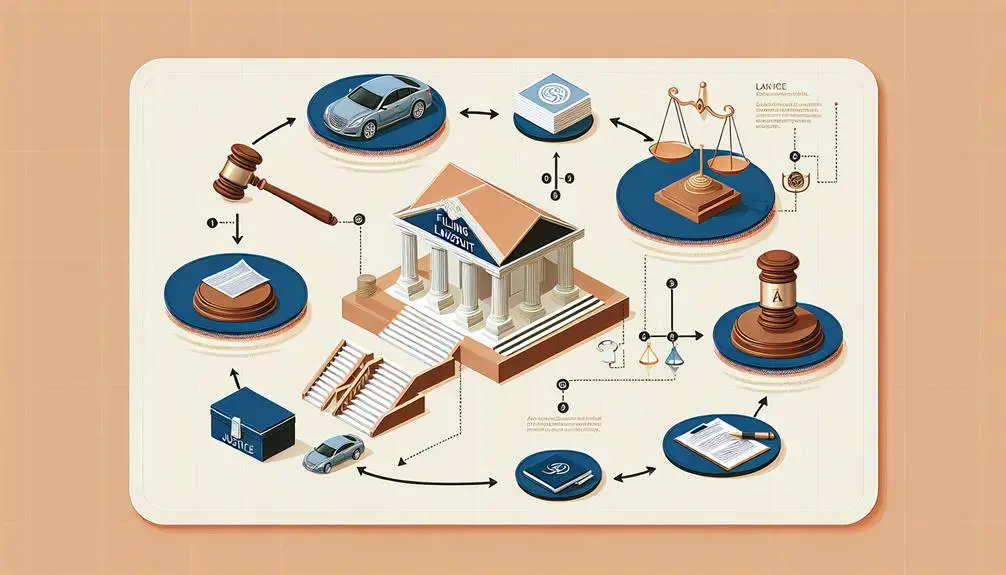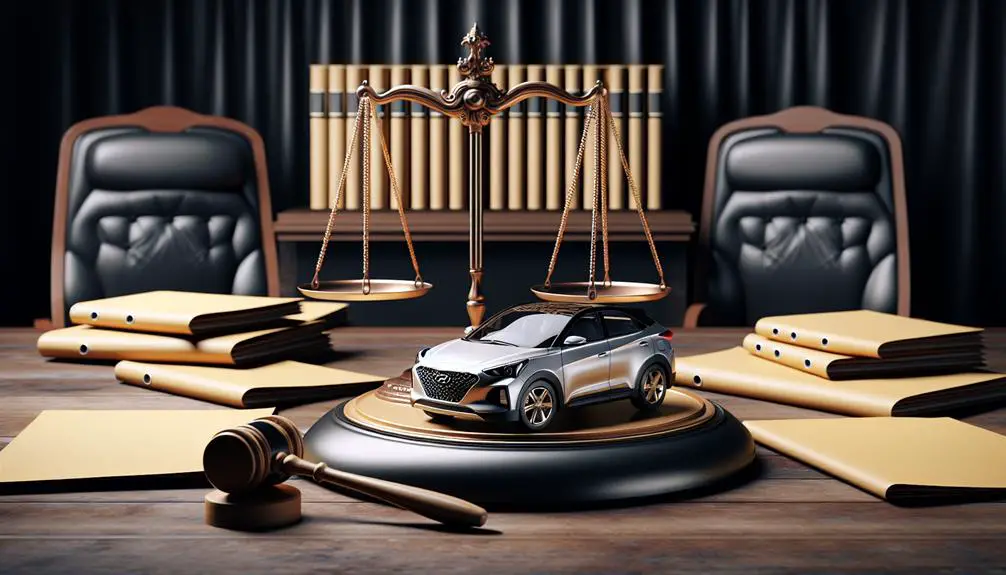Yes, you can sue Hyundai if you have legitimate grounds such as defects in your vehicle that affect its safety, value, or functionality, and if Hyundai fails to honor their warranty or violates consumer protection laws.
It's important to gather all relevant evidence, understand your rights, and possibly consult with a lawyer experienced in consumer law.
The outcome will depend on the specifics of your case and precedents set by similar lawsuits.
Understanding Consumer Rights

Before taking legal steps against Hyundai, know your consumer rights. When you buy something, like a car, you have protections against bad practices and faulty items.
First, you have the right to get a product that matches its description and works as promised. If your Hyundai doesn't, you can ask for repairs, a replacement, or a refund, based on how serious the problem is.
Warranties are also important. Hyundai cars have a manufacturer's warranty that covers certain defects for a set time. Understand this warranty well, as it details Hyundai's repair obligations at no extra cost to you.
Lastly, being well-informed is a right. All sale terms, including guarantees and warranties, should be clearly explained to you. If Hyundai didn't give you accurate information about the product's quality or warranty terms, it could help your case.
Common Grounds for Lawsuits
To sue Hyundai, check if your case involves breach of warranty, misrepresentation, or safety issues.
Breach of warranty means your Hyundai didn't work as promised during the warranty period. You might've a case if Hyundai doesn't fix issues covered by the warranty or if the car isn't suitable for driving.
Misrepresentation means Hyundai or a dealership lied about the car's condition, features, or history. If you bought the car based on false information, you could sue.
Safety issues refer to a defect in your Hyundai that's dangerous. If Hyundai hasn't fixed a safety problem that caused an accident or injury, you might've a case.
These points can help you decide if you can sue Hyundai.
The Legal Process Explained

To determine if you can sue Hyundai, first understand the legal steps. Start by submitting a complaint, which is a document that describes your issue with Hyundai, how you were affected, and what compensation you're seeking.
Hyundai will then receive a notice of your lawsuit and has about 20 to 30 days to reply. Their reply might reject your claims, argue against them, or offer to settle outside of court.
If there's no settlement, the next phase is discovery, where both sides share information related to the case. This could involve answering questions, sharing documents, or participating in depositions.
The case might then move to mediation or arbitration, which are ways to try to solve the dispute without going to trial. If these don't work, the case goes to trial, where a judge or jury decides the outcome.
Having a lawyer is very helpful. They can guide you through the legal process and help make your case stronger.
Preparing Your Case
To build a strong case against Hyundai, start by collecting all related documents like contracts, warranties, and communications with Hyundai. These documents prove your agreement and any breaches.
Then, detail any damages or issues with photos, repair bills, and expert opinions. This evidence shows the damage extent and supports your claim. Keep a detailed record of all expenses to prove your losses.
Seek advice from a legal expert in automotive law or consumer protection. They can assess your case's strength and navigate the legal process.
Consider gathering evidence like:
- Contracts: Sale or service agreements with Hyundai to prove your agreement.
- Communication: Emails, letters, or call logs to show attempts to resolve the issue.
- Photos/Videos: Visual evidence of defects or damages to show the problem.
- Expert Opinions: Assessments from mechanics to validate your claim's technical aspects.
- Receipts/Bills: Costs of repairs to quantify your financial losses.
With this evidence, you'll be better prepared to present your case against Hyundai.
Real-Life Case Studies

Let's look at how similar disputes with Hyundai have been handled in court with some real examples. These examples can help us understand what might happen in your lawsuit.
In one case, many Hyundai car owners sued the company because of engine problems. They said these problems caused engines to fail suddenly, sometimes while driving. They also said Hyundai knew about these issues but didn't tell customers or recall the cars quickly enough. Hyundai ended up settling the lawsuit. This settlement included payments to car owners, money back for repairs, and longer warranties.
Another lawsuit was about Hyundai cars' airbags not working properly during crashes. The lawsuit claimed Hyundai didn't fix this important safety problem, putting people in danger. The court agreed with the people suing, which led to a recall and a program to compensate car owners.
These examples show that with strong evidence and a good argument, it's possible to win against big companies like Hyundai. They also show the power of class-action lawsuits, which can get bigger settlements and make companies change their policies.
Conclusion
You've learned about your rights and how people sue Hyundai. Getting ready for your case means collecting proof and maybe talking to a lawyer.
Other people have won against Hyundai before, showing it's possible if you do it right. You're not alone in this.
If you think Hyundai did something wrong to you, you can do something about it. It's important to stand up for your rights and think about what to do next.